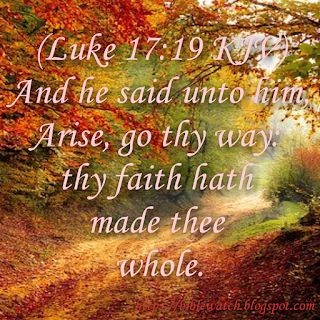IS THERE A DIFFERENCE BETWEEN BEING CLEANSED AND BEING MADE WHOLE?

Many Christians believe that the word translated “whole” in Luke 17:19 KJV refers to both physical and spiritual healing and that the nine lepers in the chapter received only physical healing because they did not return to give thanks to Jesus where as the leper that returned to give thanks to Jesus received both physical and spiritual healing. They believe all the lepers were cleansed but the one that returned to Jesus got something extra which is that he was made whole (i.e his limbs which may have been lost or deformed as a result of the leprosy were restored or that he got salvation for his soul). Though this may be true, there's however a more likely possibility that the leper did not get something more than the rest of the nine. Let's first read the story: (Luke 17:12-19 KJV) And as he entered into a certain village, there met him ten men that were lepers, which stood afar off: And they lifted up their voices, and said, Jesus, Master, have mercy on us. And when h...


